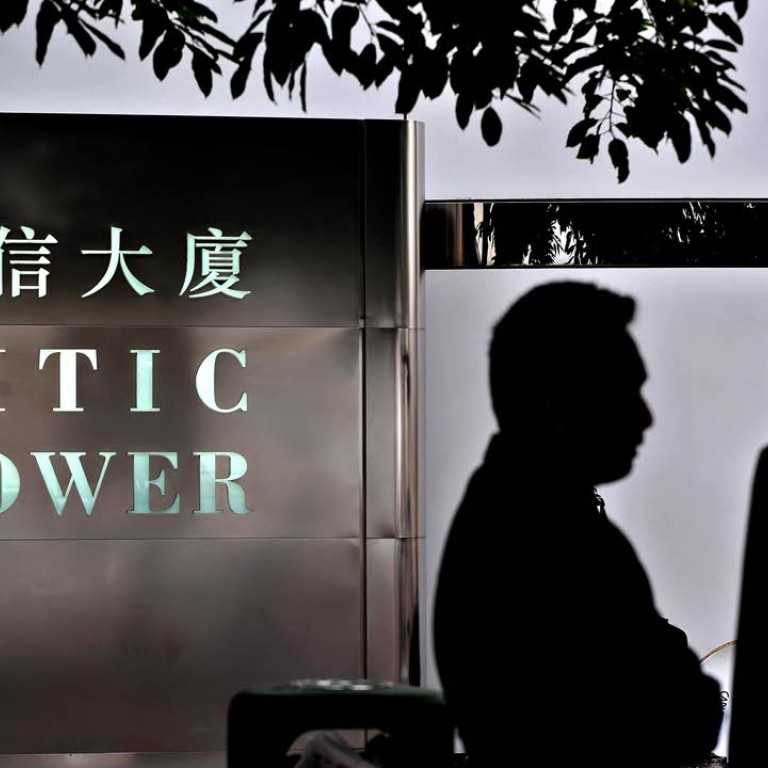
Update | China's Citic Pacific foreign exchange trades ‘out of control’ before ringing up massive losses
Market Misconduct Tribunal hearing shows company given clean bill of health despite risks in hedging product which led to Citic being on the hook for HK$14.7 billion
Citic Pacific’s foreign exchange hedging was “out of control”, a former company director and defendant in a Market Misconduct Tribunal hearing in Hong Kong wrote in an email several weeks before Citic issued an exchange filing giving it a clean bill of health, the tribunal heard on Wednesday.
Writing on August 30, 2008, to then assistant director of finance Simon Chui Wing-nin, Citic director Leslie Chang Li-hsien flagged the firm’s mounting exposure to a type of hedging product known as a target redemption forward contract, writing: “I am really concerned about the position we are in ... it is out of control.”
Over several weeks from August onwards, Chang asked Chui and his colleagues to do regular “sensitivity analysis” as Citic’s exposure to the contracts totalled A$6.5 billion.
These contracts allowed Citic to lock in a favourable US dollar-Australian dollar exchange rate so long as the market spot rate did not fall below the contract’s strike rate. That’s exactly what happened at the height of the financial crisis, leaving Citic on the hook for HK$14.7 billion owed to counterparties on the other side of the contracts.
Did you put in place any cautionary system to ensure downside risk didn’t creep up on you?
Counsel for the city’s securities regulator, the Securities and Futures Commission, are arguing that Citic directors were “reckless” and “negligent” to sign off on an exchange filing dated September 12, 2008, that made no mention of the mounting losses.
Chang is named alongside four other former directors and the firm as defendants in the tribunal hearing.
A victory for the SFC at the tribunal could result in fines and directorship disbarments for those found at fault and would strengthen the regulator’s hand in the High Court, where is it seeking HK$1.9 billion in compensation for 4,500 affected investors who traded the company’s shares between September 12 and October 20, 2008, when Citic did issue a profit warning that sent the share price plummeting.
The tribunal is now in its third week and counsel for the defendants have said the company’s financial position was not clear at the time the September 12 filing went out. Arguments over mark-to-market accounting and the minutia of foreign exchange hedging contracts are currently dominating tribunal proceedings.
Under cross examination, Chui rejected as untrue an assertion made by several of his former colleagues that he had dialled into a key meeting and stated the mark-to-market value of the contracts would break even by the end of the year – the suggestion being that Chui had said there was no need to worry. Chui said he had not joined the call.
In response to a separate line of inquiry, Chui said “I believe I must have” told colleagues about the significant over hedge position Citic was taking as the firm only needed around A$500 million to support an Australian mining venture. Asked by a counsel for the SFC, Bernard Man QC, if he was concerned about the excess hedging, Chui said he was not as the spot rate had been trading above the strike price.
At one point tribunal chairman Mr Justice Michael Hartmann asked Chui if he was aware of the downside risks to the forex contracts, where payout costs escalate the more the spot price moves below the strike rate, potentially exposing Citic to uncapped losses. “Did you put in place any cautionary system to ensure downside risk didn’t creep up on you?” Hartmann asked. Chui said that his team originally did not want to buy such contracts because of the risk but it was the only way to get the budgeted exchange rates.

